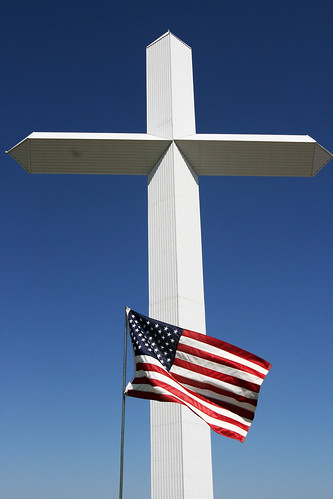 In the most recent issue of Religion (subscription required), a peer-reviewed journal which publishes original research in the comparative and interdisciplinary study of religion, a number of TIF contributors reflect on the subject of this special issue, The Study of American Religion: Critical Reflections on Specialization. TIF contributors include Jason C. Bivins, Finbarr Curtis, Tracy Fessenden, Kathryn Lofton, and John Lardas Modern. Tracy Fessenden addresses the relatively recent shift to subjects beyond American Protestantism in her article, The Object of American Religious Studies:
In the most recent issue of Religion (subscription required), a peer-reviewed journal which publishes original research in the comparative and interdisciplinary study of religion, a number of TIF contributors reflect on the subject of this special issue, The Study of American Religion: Critical Reflections on Specialization. TIF contributors include Jason C. Bivins, Finbarr Curtis, Tracy Fessenden, Kathryn Lofton, and John Lardas Modern. Tracy Fessenden addresses the relatively recent shift to subjects beyond American Protestantism in her article, The Object of American Religious Studies:
Disciplinary retrospectives on American religious studies have come over the last several decades to center on a single turning point, a decisive and expansive reformation of the object of scholars’ attentions. In a nutshell, somewhere between the 1970s and 1980s a vanguard among us began at last to leave off writing about white, northeastern, Protestant men and to write instead about everybody: more religions, more relations to religion, more of what counts as religion in the first place. Even as it lies at the animating heart of our disciplinary self-appraisals, however, this narrative turn from Protestantism to pluralism in American religious studies seems itself peculiarly resistant to analysis. This essay proposes that we revisit the dialectic between ‘oneness’ and ‘manyness’ in American religious history and historiography. In particular, it urges that we bring scrutiny to bear on the ways that our newer narratives of religious pluralism in America come to be spliced within a more longstanding and resilient metanarrative rooted in American Protestantism.
Kathryn Lofton approaches this subject from a historical prospective in her article, Religious History as Religious Studies:
What is the relationship between religious studies and religious history? Academic historical thinking emerged in part to repudiate ecclesiastical traditions of history, making the difference between religious history and histories of religion a question of denominational rivalry more than a difference in sect. Scholars working in the academic study of religion and the academic study of history have increased self-consciousness of this contingency but have not developed an account for the consequence of history as the primary mode for our thinking. As a result, scholars of religion frequently fall silent in the wake of postcolonial critiques of religious subjects, believing their work is adequately buttressed when this history (the history of the relationship between colonial oppression and religious classification) is acknowledged. Yet this is only the beginning of our work. Religious history cannot evade the methodological challenges of religious studies precisely because to identify an object as religious is to begin an inquiry into the subject of religion itself. Using the example of the year 1893, the author seeks to demonstrate how scholars of history might justify their subjects as religious, and how scholars of religion might consider their concept of history.
To access this issue of Religion (subscription required), click here.











